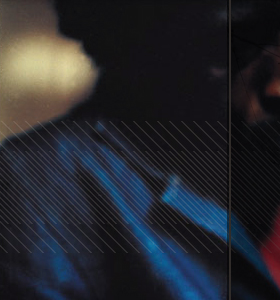Carew: Okay. So, you said, when you were about 23 you rekindled the idea of wanting to make an album. Do you think you wanted to make one kind of how Amethyst Rock Star turned out?
Williams: Um, well, kind of. I think Amethyst Rock Star is great for what it is, my first album. Because it's also strategic. I want the freedom to be able to do whatever the fuck I want to do in the music world. I don't want it to be "If it's not a breakbeat, and you're not rhyming, you're not recording it, and we're not putting it out."
Of the first songs I wrote forAmethyst Rock Star, I wrote 10 songs initially, and only two of them made it to the album. Because they all were singing, and they were all too kind of far out. And Rick heard that and he was like "That's cool, but you're gonna have to, like, build a bridge in order to be able to take people with you and have the freedom to get to that point." And, so, then, I went back and wrote more. So, actually, Amethyst Rock Star is almost like a second album, in that the first songs that I wrote did not make it to the album. They will make it to the next album, so I'm kinda working in reverse.
Carew: Did you always feel like making this record was like the start of the road for you in terms of making records?
Williams: Yeah. Definitely. Even as I was making the album, I was completely engrossed with the idea of studying all these people that I loved and their first albums. From studying Are You Experienced? to studying, fucking, like, Lenny Kravitz's first album, to studying De La's first album, y'know, just, like, listening to all these first albums and just being like "OK, OK, OK, how do you establish yourself? What do you do? How do you go about doing it? How do you make a classic album that sets yourself up so you have the freedom to go where you wanna go?"
Carew: With a background as a poet and a writer, and the nature of that kind of being as a creative island, was it hard to relinquish some of that, uh, um... I'm trying to think of the right word... just some of that total one-person control? Making a record, y'know, having to leave it to other people to help you to realize your musical ideas?
Williams: Yeah, it was hard. Mind you, I wrote 90% of the music on the album. Krust wrote the music for "Coded Language," and my DJ wrote the music for "Penny for a Thought." But all the other music, I wrote and composed everything.
What was difficult was dealing with the idea of, like, that when it came to poetry or anything else, there was never any level of sharing to see what someone else thought. I didn't have to bring other people into the mix. So that when I started doing the music, it was difficult to hear someone like Rick's response to some songs, where he was just "Nah, man, I don't like that." There's a part of me that was very much like "Fuck you! You don't have to like it, it's not for you." Y'know? And then a part of me that was like, "Well, gosh, you should listen to what this guy has to say, because he has some insight into how music works." So, it's definitely a difficult balance. Definitely a difficult balance.
Carew: What was the hardest part about learning about sharing?
Williams: The hardest part is putting your music in the hands of these industry heads, where it's one of many CDs on their desk, and you're thinking of it like "This is my baby," and they're thinking of it like "This is not marketable."
The wait in putting it out was hard. Every time the album got pushed back it was like a punch in my stomach, I would curl in fetal position and, like, cry. Y'know, it was, like, really, really difficult. Because you know what's really fucked up is that being a part of the poetry scene and the whole nine, we really had felt like we had been on the pulse of what people want to hear and want to experience, beyond what the media tells you they do. We really felt connected to that pulse. But, now, we were forced to deal with these middlemen who have no idea, and were just dealing with "Well, this doesn't sound like so-and-so's album, so how do you know it's gonna sell?"
All I really wanted was to just get the music directly to the people. And it's a weird juxtaposition, because I chose to sign to a major label, y'know. And part of the reason I chose to sign to a major label was that I wanted the funding to get this sound that I wanted to hear, and you can hear the difference in terms of sound quality. I wanted Rick Rubin as a mentor, I wanted to learn from Rick Rubin. It's a weird trade-off, because with all of the support comes the fact that there's too many cooks in the kitchen all of a sudden.
Friday, January 9, 2026 |
||

